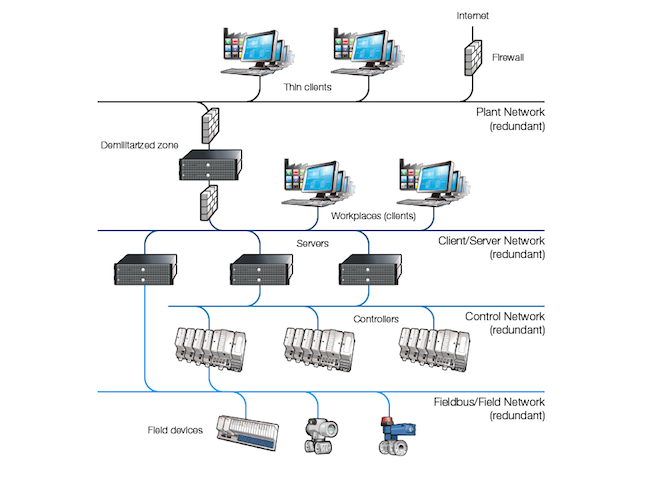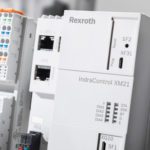While there are differences between a programmable logic controller (PLC) and a distributed control system (DCS), there has also been a move towards greater convergence of the two technologies. But first, a little history.
In the early days of automation, PLCs dominated machine control, that is, applications calling for discrete control of machine processes. Meanwhile, a DCS was the predominant choice for process control in applications such as oil and gas and chemical plants. For the most part, the PLC/DCS split still follows this historical pattern. PLCs still are used to control individual machines, while a DCS can control a larger number of machines or processes within a factory or plant.
One hallmark of PLCs is their relatively simple operating system, designed to do a minimum of tasks like scanning inputs and updating outputs. This simple OS structure means they can execute programs quickly because there are not many other processes running in the background and demanding time from the processor. PLC processing times are also quicker because they are naturally closer to the devices they control (motors, pumps, switches, etc.), so they are more responsive than a larger DCS would be because it is controlling much more than a single machine. PLCs are generally flexible and more readily customizable as well.

On the other hand, a DCS can control many more machines and processes at the same time. In fact, they are often used to control entire systems within a factory. A DCS is likely to be more reliable as well, ensuring the continuous operation of a process or system.
However, with more powerful PLCs and so-called programmable automation controllers or PACs available today, the line between a PLC and DCS continue to blur. For instance, PLCs are faster and can handle more complex control. They’ve also become more reliable, making them more like a DCS than ever before.
As for the DCS side of the equation, they have become more nimble and adaptable like PLCs and are sometimes used in place of a PLC. So in terms of functionality, the two are growing more similar than dissimilar. The cost of a DCS is still more than a typical PLC, but even here the difference in cost is shrinking not expanding.







Leave a Reply
You must be logged in to post a comment.